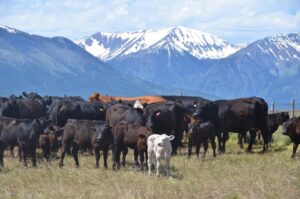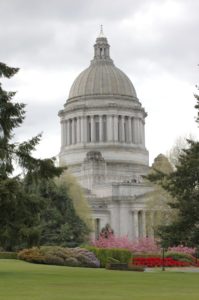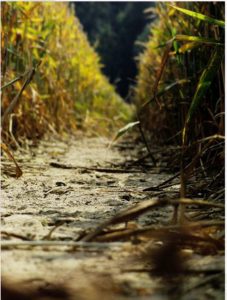Oregon Short Session & Water-Related Bills

The Oregon Legislature’s short session officially begins today, February 1st. It is anticipated that water users and water managers alike can catch their breaths somewhat during the short session, since not as many water-related bills will be considered.
The 2021 regular session was a marathon for those of us closely following or involved in water resources policy and law. In that session, efforts continued to correct the State’s questionable opinion that storage water rights cannot be modified through the transfer process. Only character of use transfers are reauthorized for the time being. Additionally, a threat to the due process rights of regulated water users was advanced. Only through great efforts was the attempt abated with some compromises of additional procedures around stays of agency orders during judicial review. Moreover, an onerous and costly water use reporting bill was proposed, despite information from the Oregon Water Resources Department that other types of data should be pursued, like additional stream gages and satellite data for evapotranspiration. The bill did not pass, but it did spur broader conversations about water management and planning that continue currently. Finally, the groundwater exemption for livestock came under attack, as proponents unsuccessfully attempted to limit the exemption to a daily maximum. In addition to these bills, many more were proposed, some of which were enacted into law.
In 2020, I began the position of Water Resources Chair for the Oregon Cattlemen’s Association. The 2021 Legislative Session was my first opportunity to participate in a large number of legislative bills on behalf of the organization. The experience certainly kept me on my toes and gave me an entirely new perspective of legislators and those who engage heavily in legislation. The bills are numerous, long, and ever-changing throughout the session. There is always too much work to be done in too little time to build consensus, draft written testimony, and testify in hearings. In 2021, we also tackled the additional hurdle of remote hearings on proposed bills due to the Covid-19 pandemic. This is to say that the 2021 legislative session was challenging, but also very exciting and rewarding. I was honored to receive an award from the Oregon Cattlemen’s Association in recognition of these efforts for “distinguished Committee leadership, responsibility, knowledge, expertise, advocacy, and tireless service to cattle producers and the Oregon Cattlemen’s Association.”
Short sessions of the Legislature in Oregon are not intended to address substantial changes in the law. Thus, it is not surprising that less water-related bills are anticipated this year. However, one priority that began receiving additional attention in 2021 is anticipated to continue at the forefront in 2022: water theft for illegal cannabis operations. Funding was provided in a special session in 2021, and numerous news articles detail the problem in the midst of the severe and continuing drought in Oregon and the West. House Bill 4061 (2022) would allow the Oregon Water Resources Department to obtain warrants to inspect private property. Additionally, the bill would require persons who both deliver water and receive water deliveries to ensure such water is from legal sources and keep records to that effect. Finally, the bill proposes to increase civil penalties for illegal water use when the crop grown is cannabis.
It is possible that additional water-related bills will be proposed in the 2022 regular session. For the time being, I will enjoy a little bit of a break on this front, being mindful that the 2023 regular session is just around the corner!





